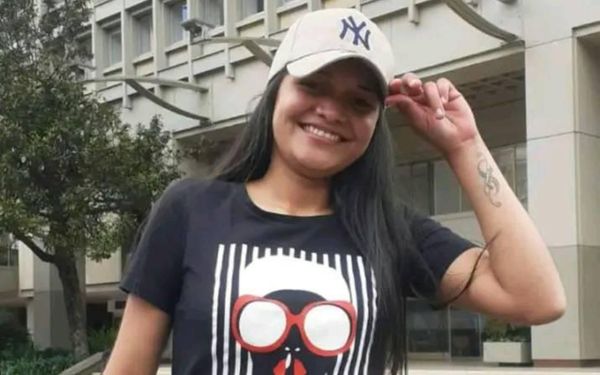
Manila (AFP) - Philippine President Ferdinand Marcos was 28 when he fled to the United States on an American military plane after a revolution ousted his dictator father and sent the disgraced family into exile.
Nearly 40 years later, Marcos used his presidential jet to fly to Washington where he was given a red-carpet welcome and hailed by President Joe Biden as the best partner he could have.
Marcos's meeting with Biden on Monday capped months of intense diplomatic courting by Washington, which is seeking to strengthen its alliances across the Asia-Pacific region to counter China's growing military might.
Beyond the warm words, the talks showed how the complex history between the United States and the Marcoses had come full circle -- Washington was once again backing a Marcos president in a geopolitical tussle for influence in Asia.
Before his overthrow in 1986, Marcos's late father and namesake ruled the Philippines for 20 years.
Rights groups say Marcos Sr's regime jailed, tortured or killed tens of thousands of critics, including church leaders, journalists and student activists.
Washington, which saw him as a bulwark against the spread of communism during the Cold War, supported him.
At the time, the United States had two major military bases north of the capital Manila, and used them to deploy troops to the Vietnam War.
Years of protests forced the closure of the bases in the early 1990s, but US troops were eventually allowed back into the Philippines for joint training and exercises.
After his father's death in 1989, Marcos and the rest of the family returned home and began a remarkable political comeback that culminated in him winning the 2022 presidential election.
Marcos's landslide victory was fuelled by a massive online misinformation campaign that portrayed his father's time in office as a golden era for the Philippines.
- Just enough, not too much -
Since taking office less than a year ago, Marcos has been feted around the world as he drums up business and investment for the Philippines.
Before the election, Marcos offered few clues on how he would govern, but his admiration for his father had raised concerns that he may adopt a similar style.
Those fears were exacerbated by his decision to team up with vice presidential candidate and eventual winner Sara Duterte, the daughter of former president Rodrigo Duterte, who trashed the US alliance during his six-year term.
The pair embraced some of the elder Duterte's key policies, including his brutal drug war that killed thousands of people and sparked an international investigation into possible crimes against humanity.
Like Duterte, Marcos appeared during his election campaign reluctant to stand up to China over territorial disputes in the South China Sea.
As soon as he won the election, however, Marcos broke with his predecessor on foreign policy by signalling he wanted stronger ties with the United States while vowing to stop China trampling on the Philippines' maritime rights.
A 2014 agreement giving US troops access to five Philippine military bases, which became dormant under Duterte, was expanded to comprise four additional sites, including one near the disputed South China Sea and another not far from Taiwan.
China claims almost the entire waterway despite an international ruling that its claims have no legal basis, while it sees democratic self-ruled Taiwan as part of its own territory.
The Philippines' close proximity to both has raised its strategic importance to the rival superpowers.
Wary of angering China, his country's biggest trade partner, Marcos hedged his bets before arriving in the United States this week, insisting the bases would not be used as staging posts for what he described as offensive actions.
"This is fundamentally about getting the Goldilocks level of security cooperation with the United States," political analyst Richard Heydarian said.
Marcos wants "just enough cooperation for the Philippines to have a bargaining chip and some deterrence capability against China, but not too much cooperation that ...potentially provokes China."
'Practical trumps principle'
Marcos's visit to the White House -- the first by a Philippine president in more than a decade -- was an example of how the "practical trumps principle", said Andres Bautista, who once led a Philippine government agency tasked with tracking down the Marcoses' ill-gotten wealth.
The elder Marcos and his wife Imelda, who is still alive, allegedly plundered billions of dollars from state coffers and presided over widespread human rights abuses.
Dozens of court cases have been filed against the family in the United States and the Philippines, but no member of the family has ever been jailed.
And Marcos still faces a US contempt of court order relating to the family's failure to pay compensation to thousands of victims of human rights abuses during his father's regime.
As a senator in early 1986, shortly before the collapse of the Marcos regime, Biden accused the dictator and his supporters of carrying out "widespread fraud, intimidation and violence" in elections that were "not free and fair", congressional records show.
But as he greeted the younger Marcos in the Oval Office on Monday, Biden said: "I can't think of any better partner to have than you".







